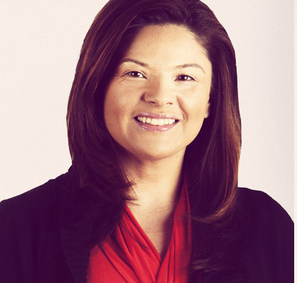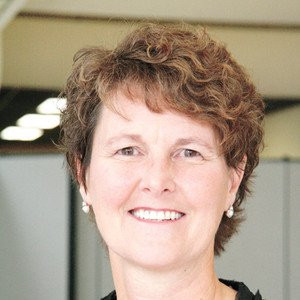Russell Moore: Warwick Puts Politics Before Students
Monday, December 16, 2013
The Warwick School Committee took a page out of the General Assembly’s book last Tuesday evening when it tabled a plan by the city’s Long Term Facilities Planning Committee (LTFPC) that would have transitioned the city’s Veterans Memorial High School (Vets) into a Junior High School and closed two junior high schools and repositioned those students into Vets.
The plan would have saved an estimated $4.5 million according to the LTFPC.
The savings would have come from closing the two buildings and the maintenance costs associated with keeping them up. It will cost millions just to bring those two buildings into line with the fire code. The savings also would have been used to improve special education and honors programs while freeing up money for all-day kindergarten.
GET THE LATEST BREAKING NEWS HERE -- SIGN UP FOR GOLOCAL FREE DAILY EBLASTGovernment by emotion
Members of the Warwick School Committee were influenced by the emotions of the students and parents who didn’t want to see the consolidations take place and cowered under the pressure. Instead of doing the courageous thing and voting to save the money, the school committee voted to spend money by hiring consultants to study the issue further.
The cynic in me knows that consultants tell their employers what they want to hear, so let’s not be surprised when the consultants study the same data and conclude that the consolidations don’t need to take place.
It won’t be an easy case, however. Like it or not, enrollment has dropped and will continue to do so. Over the last 10 years, Warwick’s high school population has gone from 3,878 students in ’03-‘04 to 2,852. That’s a drop of 1,026 students (26 percent). Over the next 10 years, Warwick will see a drop of an additional 400 students, according to data provided by the New England School Development Council (NESDEC)—a non-biased agency that provides data for districts throughout the region.
Numbers don’t lie
Meanwhile, in Cranston, a city with more students, there are only two high schools—and they seem to be getting along relatively well.
And concerns of class sizes are a non-factor as the contract with the Warwick Teachers Union assigns a maximum class size of 28 students per teacher. In other words, when you get past all the Pollyanna stuff from people who think consolidations are never the answer under any circumstances, the decision was really a no-brainer. Especially when figuring in the fact that the Warwick School Department is running on roughly the same amount of money as it did in 2008.
Yes, it would mean less sports programs and more competition amongst students to make sports teams. But a school department cannot run with sports programs as their main focus or concern.
Thinking of elections, not students
Unsurprisingly, like most politicians, the Warwick School Committee members were apparently thinking more about their next election than the best solution for everyone involved. It’s not just the School Committee, however.
Warwick Mayor Scott Avedisian hasn’t been much better on the issue. If we’re looking for leadership, he certainly didn’t provide any. To find Avedisian to comment on this issue, you’d need a search warrant. A Warwick Beacon reporter, however, was able to track him down for comment and it amounted to, from what I could decipher, lukewarm support for consolidations.
After some babble about how there is opposition to the plan and how he evidently went through consolidations when he was a kid, here’s what Avedisian told Jen Rodrigues: “It is evident based on the historical enrollment data that the Warwick school system is running under capacity at the cost of efficiency. Some action by the School Committee is necessary to free up resources that can then be reinvested into the system in the form of technology and facility upgrades as well as improved programs for students.”
“Some action”, certainly doesn’t, to my mind, signify strong support for the logical plan put forward by the city’s (LTFPC). Expect Avedisian to continue to recommend level funding the school department on an ongoing basis given that they balked at substantial savings. Despite his lack of help in the process, its hard to argue with that logic.
More rationality, please
Given how they’ve handled this process, one would think the Warwick School Department was flush with cash—not struggling.
I’ve never really been one of those people who say that government should be run as if it were a business. But when I see such blatant illogic ruling the day because government officials are too afraid to make difficult decisions, it makes one yearn for the cold rationality of business.
Yet sometimes, when I see the state or local governments running their operations based on emotions, nostalgia, and self-interest instead of sound logic and rationality, it makes me yearn for a more sound, rational, business-like approach.
A native Rhode Islander, Russell J. Moore is a graduate of Providence College and St. Raphael Academy. He worked as a news reporter for 7 years (2004-2010), 5 of which with The Warwick Beacon, focusing on government. He continues to keep a close eye on the inner workings of Rhode Islands state and local governments.
Related Slideshow: RI Experts on the Biggest Issues Facing Public Education
On Friday November 22, the Hassenfeld Institute for Public Leadership at Bryant University, the Latino Policy Institute of Roger Williams University, the Rhode Island Association of School Committees, the Providence Student Union, and RI-CAN: Rhode Island Campaign for Achievement Now will host Rhode Island leaders in the public and nonprofit sectors for a symposium on "the civil rights issue of the 21st century, adequacy and equity and the State of Education in Rhode Island."
Weighing in on the the "three biggest factors" facing education in the state today are symposium participatnts Gary Sasse, Founding Director of the Hassenfeld Institute for Leadership; Christine Lopes Metcalfe, Executive Director of RI-CAN; Anna Cano-Morales, Chairwoman of the Board of Trustees, Central Falls Public Schools and Director, Latino Policy Institute at Roger Williams University; Tim Duffy, Executive Director, RI Association of School Committees; and Deborah Cylke, Superintendent of Pawtucket Public Schools.
Related Articles
- Russell Moore: 38 Studios Taints RI House Budget
- Russell Moore: Are Student Loans The New Indentured Servitude?
- Russell Moore: Chafee Should Pursue Bold Economic Reforms
- Russell Moore: Colleges Are The Culprit In Student Loan Debacle
- Russ Moore: Can Raimondo Out-Spin The Unions?
- Russell Moore: Don’t Burn Books, Providence College
- Russ Moore: Langevin’s Mature Approach To Domestic Surveillance
- Russell Moore: Election 2014: It’s the Economy, Stupid
- Russ Moore: Raimondo vs. Taveras = Clinton vs. Obama in RI
- Russ Moore: Who Wins + Who Pays In RI’s $20M Blue Cross Settlement















